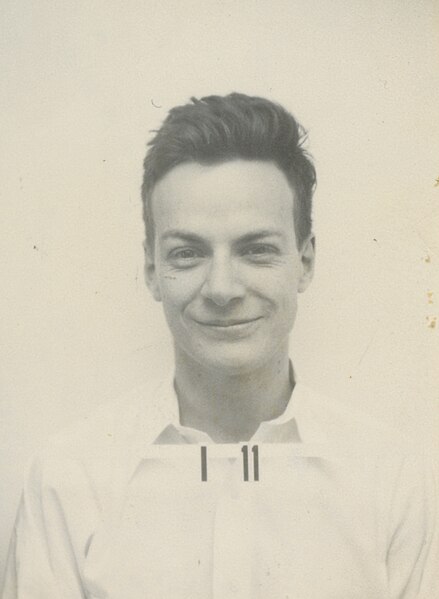Richard Phillips Feynman was an American theoretical physicist, known for his work in the path integral formulation of quantum mechanics, the theory of quantum electrodynamics, the physics of the superfluidity of supercooled liquid helium, as well as his work in particle physics for which he proposed the parton model. For his contributions to the development of quantum electrodynamics, Feynman received the Nobel Prize in Physics in 1965 jointly with Julian Schwinger and Shin'ichirō Tomonaga.
Feynman c. 1965
Feynman's Los Alamos ID badge
At the 1946 colloquium on the "Super" at the Los Alamos Laboratory. Feynman is in the second row, fourth from left, next to Oppenheimer.
Feynman (center) with Robert Oppenheimer (immediately right of Feynman) at a Los Alamos Laboratory social function during the Manhattan Project.
Quantum mechanics is a fundamental theory in physics that describes the behavior of nature at and below the scale of atoms. It is the foundation of all quantum physics, which includes quantum chemistry, quantum field theory, quantum technology, and quantum information science.
Max Planck is considered the father of the quantum theory.
The 1927 Solvay Conference in Brussels was the fifth world physics conference.






